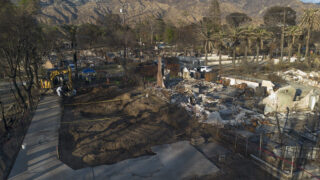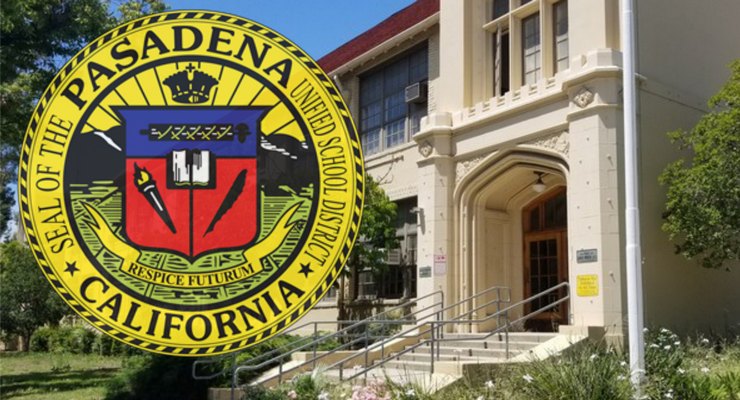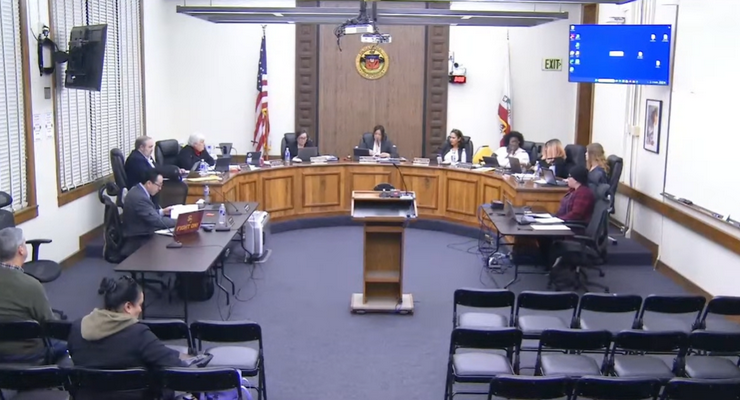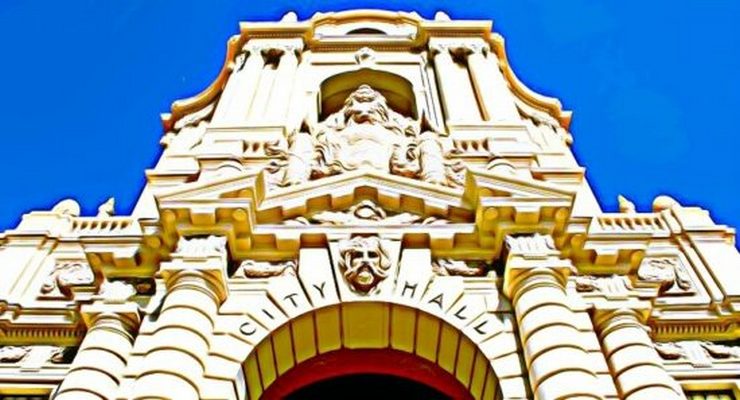
The funding, championed by Senator Pérez, would support mission-driven nonprofits committed to preserving the economic and racial diversity of Altadena to acquire fire-damaged properties for redevelopment as affordable housing or community ownership models, the statement said.
“The people of Altadena suffered the worst of the Eaton Fire’s devastation. Now, they are being victimized a second time by outside real estate speculators who see a path to get rich on others’ pain,” Senator Pérez said in the statement.
“We must protect Altadena fire victims from harassing and predatory corporate buyers making low cash, unsolicited offers to buy their families’ homes. This is why I support the community’s request for $200 million in state funding for a community land trust.”
According to the statement, dozens of community leaders gathered Thursday in Altadena to draw attention to the urgent need for state intervention.
The statement cited a new report by Strategic Actions for a Just Economy showing that corporate acquisition of land has accelerated since the fire. Nearly half of the 94 post-fire property sales from February 11 to April 30 went to corporate entities, compared to only five of 95 sales during the same period last year.
Those most vulnerable to displacement include Black seniors who built generational wealth in Altadena after being redlined out of other areas, the statement noted. Data in the statement from 2018 to 2023 shows that 43% of Black mortgage holders in Altadena are over 65, compared to 16% for white, 12% for Asian, and 11% for Latino residents.
“As a fourth-generation African-American Altadenan, I’ve seen Black families and working folks fight to build a life here when others shut us out. Now, predatory developers are threatening that legacy — putting profit over people. This isn’t just a land fight; it’s a fight for the soul of Altadena,” Coach Zaire Calvin, Community Leader and Founder of Xtreme Athletics, is quoted as saying.
The statement indicated that Senator Pérez is authoring S.B. 658 to support community preservation in the Eaton and Palisades communities by limiting the destructive impact of predatory real estate investors.
“Altadena is a special community, but if we don’t act quickly, we risk losing what so many of us love, care and grew up with,” said Sylvie Andrews of Altagether, a grass-roots organization of 130+ “neighborhood captains” dedicated to helping neighbors stay connected and communicating after the Eaton Fire, according to the statement.
“We’ve seen rampant speculation from real estate corporations that are only seeking to make themselves rich. We do not want to become a wasteland of unoccupied millionaires’ properties built to maximize profit and minimize human connection. Community land trusts are one of our best tools for fighting against developers and preserving our community.”
A representative of the California Black Freedom Fund agreed.
“Altadena has long been a place where Black families could build community, longevity, and generational wealth—often after being excluded elsewhere. We cannot allow this disaster to become a doorway for displacement. This is a moment for California to invest in real solutions that keep land in the hands of the people who live there,” added Marc Philpart, Executive Director, California Black Freedom Fund, according to the statement.
The requested funding could come from multiple sources, including $4 billion previously allocated for wildfire response, the state’s Special Fund for Economic Uncertainties, other state accounts that have available borrowable balance, and the annual state budget process, the statement explained.
“A just recovery will not only restore property, but will honor the fabric of communities and the dignity of residents,” Miguel Santana, President and CEO of California Community Foundation, said in the statement. “We fundamentally believe that those closest to the community should be at the center of developing the solutions that work for them – because they know best what their communities need. Directing state dollars to ensure that nonprofits in fire-ravaged communities can protect their most vulnerable, keep wealth circulating locally, and support redevelopment that honors the community’s history and future is a sound, responsible, and urgently needed policy.”



















